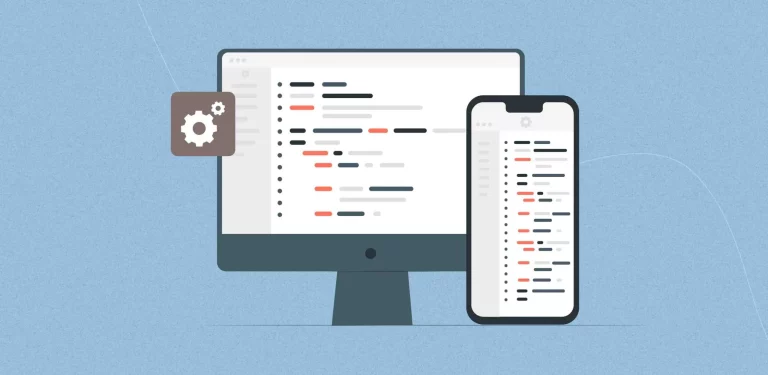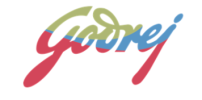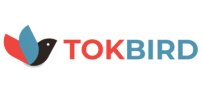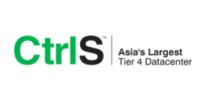


An eLearning app development company plays a vital role in transforming how education and corporate training are delivered in today’s digital-first world. As learning rapidly moves beyond traditional classrooms, organizations—from universities and enterprises to startups and coaching institutes—are investing in eLearning app development to reach, train, and engage learners anytime, anywhere.
However, not all development partners are created equal. While many can build an app, only a select few can craft a scalable, learner-centric, and results-driven eLearning platform that truly enhances engagement and delivers measurable impact. Choosing the wrong partner can lead to poor user adoption, missed deadlines, and unnecessary costs.
This comprehensive guide will walk you through every step of hiring the right eLearning app development company—one that aligns with your goals, understands the nuances of digital learning, and can turn your vision into a powerful, future-ready learning experience.
An eLearning app development company is more than just a software vendor—it’s a strategic technology partner that helps organizations design, build, and scale impactful learning experiences. These companies bridge the gap between education and technology, combining instructional design principles, learner psychology, and robust engineering practices to create solutions that educate, engage, and empower.
In today’s fast-evolving learning ecosystem, eLearning app developers cater to a diverse range of audiences—universities, EdTech startups, corporate L&D departments, government institutions, and professional training providers. Their goal is to ensure that learning becomes accessible, measurable, and deeply interactive, regardless of the platform or device used.
Here’s what an eLearning app development company typically brings to the table:
Mobile and Web App Development for Learners and Instructors
A top-tier company designs seamless digital learning experiences across devices. From responsive web portals for instructors to immersive mobile apps for learners, every interface is built to enhance usability, reduce friction, and encourage consistent participation. Features like video lectures, live sessions, assignments, and interactive assessments are carefully structured to mirror real classroom engagement.
Gamification and Interactive UX for Engagement
Learning retention increases when users are motivated and entertained. Expert education app developers integrate gamified elements—badges, points, leaderboards, and progress milestones—to make learning fun and competitive. They also focus on intuitive UX design, ensuring every click, swipe, and animation drives engagement and curiosity.
AI-Based Personalization and Progress Tracking
Modern learners expect personalization. Through AI-powered algorithms, eLearning apps can analyze user behavior, learning speed, and content preferences to recommend personalized modules, quizzes, or next lessons. Intelligent dashboards help instructors and administrators monitor progress, identify learning gaps, and tailor interventions that improve performance outcomes.
SCORM/xAPI Integration for Content Compatibility
For organizations that rely on standardized course content, compliance with SCORM (Sharable Content Object Reference Model) and xAPI (Experience API) is non-negotiable. These integrations ensure that your app can seamlessly import, track, and analyze external course content—making it future-proof and interoperable with other LMS platforms or authoring tools.
Data Analytics Dashboards for Institutions and Corporates
Learning without insights is guesswork. A reliable eLearning app development company builds data analytics and reporting systems that give administrators a clear view of learner progress, completion rates, engagement patterns, and overall ROI. These dashboards are invaluable for corporate learning and higher education, where training effectiveness directly impacts productivity and compliance.
Building an eLearning product is an exciting journey—but it’s also filled with challenges that can derail timelines, inflate budgets, and compromise the learner experience. Many organizations, especially those developing their first EdTech solution, encounter obstacles that could have been avoided with proper planning and the right technology partner. Understanding these pain points early on helps you design a more efficient, scalable, and engaging platform.
Undefined Learning Goals → Scattered Development Efforts
One of the biggest mistakes organizations make is jumping into development without clearly defining what they want learners to achieve. Without well-defined learning objectives or measurable outcomes, teams often end up building features that look impressive but fail to support meaningful learning. This lack of clarity leads to confusion, fragmented user journeys, and a product that doesn’t solve the core educational problem. A reliable eLearning app development company begins with discovery workshops and needs analysis to align product functionality with pedagogical goals.
Poor Learner Engagement → High Dropout Rates
Even the most technically advanced app can fail if learners don’t stay engaged. Boring interfaces, lengthy modules, or a lack of gamification often result in users abandoning the platform after just a few sessions. Engagement issues directly affect course completion rates and overall ROI. Modern education app developers combat this by integrating gamified experiences, progress tracking, microlearning, and AI-based recommendations that keep learners motivated and returning for more.
Unclear Technical Scope → Scope Creep and Delays
Many eLearning projects fall behind schedule due to vague technical specifications or evolving requirements. Without a clear scope document, what begins as a 3-month project can easily extend to 6 months or more. Scope creep not only increases costs but also leads to friction between clients and developers. The best EdTech software development partners mitigate this by using Agile methodology, sprint planning, and transparent documentation—ensuring that every stakeholder has visibility and control over project progress.
Limited Scalability → Performance Issues as Users Grow
Your eLearning platform might work perfectly for a hundred users—but what happens when you scale to ten thousand? Many early-stage solutions struggle to handle concurrent users, live streaming, or heavy content delivery, leading to lags and crashes. Scalability must be part of the core architecture, not an afterthought. An experienced eLearning app development company builds on cloud-native infrastructure (AWS, Azure, or GCP) and uses microservices, CDNs, and auto-scaling to ensure your platform performs flawlessly at scale.
Lack of Compliance → Risk of Legal or Data Breaches
When handling student or corporate training data, compliance isn’t optional—it’s mandatory. Failing to meet standards like GDPR, FERPA, or HIPAA can result in legal liabilities and loss of user trust. Many businesses overlook these requirements in early development phases. A trusted partner with EdTech expertise ensures compliance by design, implementing secure authentication, data encryption, and region-based data governance from day one.
Inadequate Post-Launch Support → Outdated or Broken User Experience
Launching your app isn’t the finish line—it’s the starting point for continuous improvement. Without regular updates, bug fixes, and feature enhancements, your eLearning product can quickly become obsolete or incompatible with new devices and browsers. The lack of proactive support leads to frustrated users and declining engagement. Reliable eLearning platform development teams offer long-term maintenance plans, periodic updates, and performance monitoring to keep your app fresh, relevant, and secure.
Hiring an eLearning app development company isn’t just a procurement decision—it’s a strategic partnership that directly impacts your learners’ experience, business growth, and long-term ROI. Rushing into the selection process without structure often leads to mismatched expectations and avoidable costs. To make an informed choice, follow this proven six-step roadmap designed to help you hire smart, not fast.
Define Your Vision and Goals
Every successful project begins with clarity. Before you approach any vendor, take time to define your vision, learning objectives, and success metrics. Ask yourself:
A clearly articulated vision helps the development partner align their technical roadmap with your educational and business goals. For example, a corporate learning platform may prioritize analytics and skill tracking, while a K-12 eLearning app might emphasize gamification and parental controls.
Shortlist Experienced Education App Developers
Once you know what you want, start identifying potential partners who specialize in EdTech. Don’t just search for generic software companies—look for those who have delivered proven results in eLearning, LMS platforms, or digital classroom solutions.
Here’s what to look for:
The goal here is to find a partner that doesn’t just “code” but understands the learning ecosystem—from instructional design to student engagement.
Evaluate Technical Expertise
The technology behind your learning app determines its stability, scalability, and user satisfaction. During evaluations, assess the company’s mastery of the tech stack and emerging trends that enhance modern learning experiences.
Ask questions such as:
A capable eLearning app development company will walk you through how they balance user experience, performance, and future scalability, not just show a demo.
Discuss Project Methodology
A development company’s process often defines how efficiently your project progresses. The best teams follow Agile or Scrum methodologies, which break down complex projects into short, iterative sprints.
What does this mean for you?
Ask whether they use project management tools like Jira, Trello, or ClickUp, and how often you can expect progress reports. This ensures visibility, accountability, and smoother collaboration.
Request Proposals and Compare Beyond Price
When you receive proposals, it’s tempting to focus solely on cost—but this can be a costly mistake. Instead, evaluate vendors on overall value, innovation, and reliability.
Compare:
Remember: The cheapest option may not always be the most cost-effective if it compromises quality or requires heavy rework later. Look for the partner who provides the best balance of cost, creativity, and competence.
Review Contracts and Ownership Clauses
Before signing on the dotted line, carefully review the legal and intellectual property (IP) clauses. You should retain full control over:
Also, confirm data protection responsibilities, maintenance terms, and NDA agreements to safeguard your business and learners’ privacy. A professional eLearning app development company will have transparent policies that protect both parties and clearly outline rights, liabilities, and service expectations.
Modern learners demand experiences that are interactive, personalized, and results-oriented. A simple collection of video lessons or PDFs is no longer enough — today’s users expect an engaging, adaptive, and accessible learning environment. When choosing an eLearning app development company, it’s essential to ensure your partner understands how to integrate both educational psychology and advanced technology into the product. Below are the must-have features that define a successful eLearning app development strategy.
Personalized Learning Paths Powered by AI
One-size-fits-all learning is a thing of the past. AI-driven personalization helps tailor content, quizzes, and recommendations based on each learner’s pace, performance, and preferences. By analyzing behavioral data, the app can automatically suggest relevant modules, difficulty levels, or practice exercises. This not only boosts engagement but also improves learning retention.
Example: If a learner struggles with “Advanced Grammar,” the AI system can automatically recommend foundational lessons before progressing further.
Gamification Elements: Badges, Leaderboards, and Streaks
Gamification transforms learning into a fun, motivating experience. Adding badges for achievements, streak counters for consistency, and leaderboards for friendly competition keep users coming back. It triggers the brain’s reward system, encouraging participation and persistence.
Pro tip: The right eLearning app development company will help balance game mechanics with learning goals so motivation complements mastery—not distracts from it.
Live Classes and Interactive Quizzes
Live sessions replicate the classroom experience virtually, creating real-time interaction between learners and instructors. Integrated chat, polls, and Q&A functions allow two-way communication, while interactive quizzes test comprehension instantly. These features encourage collaboration, build community, and help instructors gauge learner understanding on the go.
Offline Mode for Mobile Learning Flexibility
Not every learner has consistent internet access. Offline mode enables users to download lessons, videos, or assessments for learning on the move—whether during travel or in low-connectivity zones. Once back online, progress syncs automatically, ensuring a seamless experience. This feature dramatically expands accessibility, especially for global audiences and remote learners.
Progress Analytics and Insights Dashboards
Both learners and educators benefit from robust data visualization. Dashboards provide detailed reports on course completion rates, quiz scores, learning time, and engagement metrics. For administrators and instructors, these analytics uncover trends and gaps—helping them refine content and strategy. For learners, real-time progress tracking builds motivation and accountability.
Tip: Modern custom LMS development integrates analytics directly with AI algorithms to predict learner outcomes and recommend improvements.
Want to know more about the Custom LMS Development process? Read the detailed guide.
Push Notifications for Re-engagement
Notifications are key to keeping learners active and informed. From reminders about upcoming classes to nudges about unfinished modules, push notifications sustain engagement and minimize drop-offs. They can also be personalized — for instance, congratulating a learner for completing a milestone or prompting them to continue their streak.
Multilingual Support to Expand Global Reach
In a global learning ecosystem, language inclusivity drives adoption. Offering multilingual support allows institutions and enterprises to serve learners from diverse regions without alienating non-native speakers. A professional eLearning platform development partner ensures localization of both content and interface—right down to date formats, currencies, and cultural nuances.
Prioritizing Features for MVP vs. Later Phases
Not all features need to be launched at once. A strategic eLearning app development company will guide you in identifying Minimum Viable Product (MVP) features — such as core learning modules, assessments, and dashboards — while planning advanced capabilities like AI-driven recommendations or AR/VR integration for future phases. This phased approach helps optimize time, budget, and user feedback loops.
When hiring an eLearning app development company, the discussion around the technology stack and system architecture is not just a technical formality — it’s a strategic conversation that defines how future-ready, secure, and scalable your learning platform will be. The right tech stack determines everything from user experience and performance to data security and the ability to integrate with other systems over time.
Let’s break down the essential components to discuss with your development partner.
Frontend: Creating Engaging Learner Interfaces
Your platform’s frontend is the face of your learning experience — where learners interact, engage, and spend most of their time. The goal is to deliver a smooth, responsive, and accessible interface that works seamlessly across devices and screen sizes.
A professional eLearning app development company typically uses:
Choosing the right frontend framework ensures learners enjoy a consistent, interactive, and distraction-free experience — essential for engagement and retention.
Backend: Powering Performance and Scalability
The backend is the engine that drives your eLearning platform development. It manages user authentication, content delivery, progress tracking, analytics, and all background processes that make the app function smoothly.
Common backend technologies include:
A modular backend design allows new features — such as gamification, adaptive learning, or API integrations — to be added without major rework. This future-proofing is crucial for long-term scalability.
Database: Managing Content and Learner Data Efficiently
A learning app processes large amounts of data — from video content and assessments to learner progress and analytics dashboards. Your database must be fast, secure, and scalable as your user base grows.
Top choices include:
Often, eLearning apps use a hybrid database approach, combining relational and NoSQL databases for maximum flexibility and performance.
Cloud Infrastructure: Ensuring Stability, Speed, and Global Access
Cloud infrastructure is the backbone of your platform’s reliability and availability. A cloud-native setup allows your app to handle thousands of concurrent learners, provide low-latency video streaming, and scale on demand.
Your development partner should be proficient in:
A well-architected cloud solution ensures your platform remains stable even during high traffic (e.g., live sessions or course launches), while keeping infrastructure costs optimized.
Compliance and Security: Safeguarding User Data
With sensitive learner information and payment data at stake, compliance cannot be an afterthought. Your chosen eLearning app development company must ensure:
Security best practices such as end-to-end encryption, role-based access control, and secure API management must be integral to the architecture — not optional add-ons.
Integrations: Enhancing Functionality and Learner Experience
Modern eLearning platforms don’t exist in isolation — they thrive through integrations that create a connected, intuitive ecosystem.
Key integrations to consider:
Integrations not only improve functionality but also deliver a personalized and cohesive learning experience for both learners and administrators.
Choosing the right eLearning app development company isn’t just about verifying technical capabilities—it’s about finding a strategic partner who understands how technology, learning psychology, and business goals intersect. The evaluation process should focus on long-term collaboration, adaptability, and proven expertise in building successful education technology solutions.
Below is a detailed breakdown of the key evaluation factors you should consider before making your decision.
Experience: Look for Proven Domain Expertise
What to Check: Review their portfolio of eLearning and LMS projects, client case studies, and testimonials. Assess whether they’ve worked with organizations similar to yours—be it universities, training institutes, or enterprises.
Why It Matters:
Experience in the EdTech domain ensures the team understands learning workflows, compliance requirements (like SCORM/xAPI), and engagement best practices. An experienced education app developer brings tested frameworks, reusable components, and design insights that can significantly reduce your time-to-market.
Pro tip: Ask for real performance metrics—such as learner engagement rates, retention improvements, or scalability milestones—from their previous projects.
UI/UX Design: Prioritize Learner Experience Over Interface
What to Check: Evaluate the company’s approach to user experience (UX) design—look for wireframes, prototypes, and accessibility compliance. Check if their designs incorporate inclusive principles (contrast ratios, font readability, multilingual support) and are responsive across devices.
Why It Matters:
An intuitive interface and frictionless navigation directly influence learner engagement and satisfaction. A great eLearning app development company doesn’t just make an app look appealing—it designs for learning flow, retention, and motivation.
Pro tip: Request interactive prototypes during the proposal stage. It helps you visualize how the user journey will feel before any code is written.
Tech Mastery: Assess Their Command of Modern Technology
What to Check: Dive into their technical stack and innovation depth—from AI-driven personalization and cloud-native infrastructure to video streaming, data analytics, and microservices architecture.
Why It Matters:
The success of an eLearning platform development project depends on scalability, reliability, and integration. A tech-savvy partner can implement adaptive learning, predictive analytics, and performance dashboards that evolve with user data. They’ll also ensure your platform is compliant with GDPR, SOC 2, or HIPAA if needed.
Pro tip: Ask how they handle large user volumes, real-time collaboration tools (like live classes or whiteboards), and multi-tenant architecture if you plan to scale.
Communication: Demand Transparency and Collaboration
What to Check: Understand their communication workflow—project updates, sprint planning, and feedback loops. Check if they use agile tools like Jira, Trello, or ClickUp, and whether you’ll have direct access to project managers and developers.
Why It Matters:
Clear communication prevents scope creep, delays, and misaligned expectations. A responsive eLearning app development partner keeps you informed at every milestone, ensuring quick decisions and smooth iteration.
Pro tip: During early interactions, note how promptly they respond, how clearly they explain technical details, and how open they are to feedback—these are predictors of future collaboration quality.
Support & Upgrades: Think Beyond the Launch
What to Check: Ask about their post-launch maintenance, version upgrades, and support SLAs. Ensure they have structured processes for handling bugs, adding new features, and optimizing performance.
Why It Matters:
An eLearning platform isn’t a one-time build—it evolves continuously with new technologies and learner behaviors. Reliable maintenance ensures uptime, improved performance, and integration of emerging tools like AI tutors or gamified analytics.
Pro tip: Choose a company that offers proactive monitoring and periodic upgrades, not just reactive support. This guarantees your app remains relevant and competitive for years.
When partnering with an eLearning app development company, one of the first discussions you’ll have revolves around cost and engagement models. Understanding how pricing works helps you make informed decisions that balance budget, flexibility, and quality. Here’s a breakdown of the most common pricing structures used in the industry — along with what they mean for your project’s success.
Fixed Price Model
A Fixed Price model works best for projects with clearly defined requirements, timelines, and deliverables. In this approach, the cost and scope are agreed upon upfront, ensuring predictability in both budget and output.
Best suited for:
Advantages:
Considerations:
Time & Material (T&M) Model
The Time & Material model is designed for projects where requirements may evolve based on user feedback or market shifts. Here, you pay for the actual time and resources spent on development — allowing flexibility to adjust scope and priorities throughout the process.
Best suited for:
Advantages:
Considerations:
Dedicated Team Model
In the Dedicated Team model, the development company provides a full-fledged, cross-functional team—typically including developers, designers, QA engineers, project managers, and sometimes DevOps or AI specialists—who work exclusively on your project.
Best suited for:
Advantages:
Considerations:
Hiring an eLearning app development company is one of the most strategic decisions an organization can make—one that directly influences learner experience, ROI, and long-term scalability. However, many projects stumble because of avoidable oversights during the selection and planning phases. Below are the most common mistakes you should steer clear of when choosing your development partner.
Choosing Solely Based on Price
It’s tempting to pick the lowest quote, especially when multiple vendors promise “feature-rich” learning apps within tight budgets. But cost shouldn’t be your only criterion.
Low-cost bids often lead to:
Instead, evaluate proposals based on value—including expertise, support, technology choices, and post-launch reliability. The cheapest option often becomes the most expensive mistake when quality issues surface down the line.
Ignoring UI/UX and Learner Psychology
An eLearning app’s success depends not just on functionality but on how learners feel while using it. Many businesses make the mistake of focusing heavily on backend features while neglecting user experience (UX) and learner engagement design.
A poor interface can discourage users from completing courses or interacting with content. The best eLearning app development companies understand the psychology of learning—they design interfaces that encourage curiosity, reward progress, and simplify navigation.
Remember: A visually appealing, intuitive design is not just aesthetic—it’s strategic. It keeps learners motivated and ensures higher completion rates.
Not Clarifying Ownership and IP Rights
Intellectual property (IP) rights are a critical yet often overlooked aspect of software development contracts. If you don’t explicitly define ownership, you might end up with limited access to your own codebase, design assets, or data.
Ensure your contract clearly states that:
This legal clarity prevents future disputes and ensures your platform remains truly yours—ready for scaling, funding, or acquisition.
Overlooking Scalability and Integrations
Many first-time eLearning founders focus on getting their MVP out quickly and forget to ask, “Can this scale when we grow?”
A well-architected app should handle:
Neglecting scalability early can lead to expensive refactoring later. Your eLearning platform development partner should plan for growth from day one—with modular architecture, cloud readiness, and robust APIs.
Failing to Define Success Metrics Early
Without clear goals, even the best-built app can fail to deliver measurable value. Many organizations dive into development without defining what success looks like—whether it’s learner engagement, retention, or ROI.
Before development begins, align with your vendor on:
Setting success metrics helps your partner design features and dashboards that align with real outcomes—not assumptions.
The eLearning landscape is evolving faster than ever before — shaped by cutting-edge technology, changing learner expectations, and the growing demand for continuous upskilling. The next decade will redefine how education is created, delivered, and experienced. Here’s a closer look at the key trends that will influence the future of eLearning app development and transform digital learning into a more intelligent, immersive, and personalized experience.
AI-Driven Learning Personalization
Artificial Intelligence is revolutionizing eLearning app development by bringing true personalization to the learner experience. Instead of one-size-fits-all content, AI analyzes learner behavior, progress, and preferences to deliver customized learning paths.
How it works: AI-powered systems track learner engagement and adapt course difficulty, recommend relevant modules, and predict learning gaps.
Why it matters: Learners stay more motivated, complete courses faster, and retain knowledge better.
Example: AI can recommend advanced modules to high performers while revisiting basics for those who need extra help — just like a personal tutor.
Forward-thinking education app developers are now embedding adaptive AI algorithms to make learning journeys smarter and more human-like.
Immersive AR/VR Classrooms
Augmented Reality (AR) and Virtual Reality (VR) are redefining digital classrooms by turning theoretical lessons into hands-on experiences. Imagine medical students practicing surgeries in a VR lab or engineering students assembling a virtual engine.
Why it’s transformative: Learners can explore real-world scenarios in a safe, immersive environment, improving retention and practical understanding.
Industry impact: Sectors like healthcare, aviation, and manufacturing are using AR/VR-based learning for skill development and compliance training.
As eLearning platform development matures, these immersive experiences will move from novelty to necessity, bridging the gap between concept and practice.
Gamified Microlearning Modules
Attention spans are shrinking — and gamification is the perfect antidote. Modern eLearning app development companies are integrating microlearning modules infused with gamified elements such as points, badges, and leaderboards.
Microlearning: Breaks complex topics into bite-sized lessons of 3–7 minutes.
Gamification: Rewards learners for progress, encouraging consistent engagement.
Result: Higher motivation, better retention, and a sense of accomplishment.
Gamified learning transforms passive users into active participants, making education both enjoyable and measurable.
Voice-Based Conversational Learning
Voice interfaces powered by Natural Language Processing (NLP) are reshaping how learners interact with educational content. Imagine a student saying, “Explain Newton’s laws again,” and the app responding conversationally with examples and visuals.
Benefits: Enhances accessibility, especially for differently-abled learners.
Emerging trend: Integration of Alexa, Google Assistant, or in-app AI tutors for hands-free learning. This hands-free, interactive learning method will become integral to online learning app development, offering users an intuitive and personalized way to study.
Data-Driven Insights for Educators
Data analytics has become the backbone of modern EdTech software development. By collecting real-time metrics on learner progress, engagement, and assessment outcomes, educators can make informed decisions and continuously refine course content.
What’s changing: Predictive analytics helps identify at-risk learners early.
Why it’s powerful: Institutions and companies can now measure learning effectiveness, ROI, and learner satisfaction with precision.
Data-driven dashboards empower instructors to shift from reactive teaching to proactive mentorship — improving both performance and outcomes.
Blockchain-Based Credential Verification
As online education grows, so does the need for secure and verifiable digital credentials. Blockchain technology ensures that certifications, degrees, and achievements are tamper-proof and universally recognized.
How it helps: Prevents fraud and simplifies credential validation for employers or institutions.
Future potential: Learners could own lifelong, portable digital records of their skills and achievements across platforms.
This innovation will soon become standard practice in custom LMS development, bringing transparency and trust to digital education.
At Enfin, we don’t just build apps — we engineer transformative learning ecosystems that empower educators, enterprises, and learners alike. With more than a decade of expertise in EdTech software development, our mission is to merge innovation with education through intelligent design, scalable architecture, and measurable results.
[15+ years of expertise, 50+ successful custom EdTech platforms delivered, and an average 35% improvement in learner completion rates.]
Blending Product Engineering, UX Excellence, and AI Innovation
Every successful eLearning product lies at the intersection of technology, pedagogy, and user experience. Our cross-functional teams — including product strategists, UX/UI designers, and AI engineers — work collaboratively to design learning platforms that are visually intuitive, pedagogically sound, and technologically future-proof.
We focus on creating digital learning experiences that are engaging, accessible, and tailored to modern learner behaviors — whether it’s a mobile-first platform for students or a data-driven corporate LMS for employee training.
Our Core Specializations
Custom LMS Development Tailored to Your Training Goals
We design and develop custom LMS solutions that adapt to your unique learning objectives — from corporate compliance training to large-scale educational delivery. Our systems are built for flexibility, integrating SCORM/xAPI standards, advanced reporting, and automation tools for seamless management.
Live Class and Hybrid Learning Platforms with Real-Time Interaction
With the rise of virtual and hybrid classrooms, we’ve developed robust live learning ecosystems that support real-time video conferencing, breakout rooms, whiteboards, and interactive polls. These solutions enhance collaboration between instructors and learners while maintaining enterprise-grade reliability and low latency.
Gamified Learning Experiences for K–12 and Corporate Training
Engagement is at the heart of learning success. We incorporate gamification elements like badges, progress tracking, leaderboards, and micro-challenges that boost motivation and knowledge retention. For corporate users, gamified modules drive higher completion rates and measurable skill outcomes.
Cloud-Native Architectures Ensuring Scalability and Uptime
Our solutions are architected for the cloud — whether it’s AWS, Azure, or GCP — ensuring 99.9% uptime, faster deployment, and effortless scalability. Kubernetes-based orchestration enables auto-scaling for fluctuating traffic, while managed PostgreSQL and MongoDB solutions provide data resilience and compliance.
AI-Powered Analytics and Adaptive Learning Models
We harness the power of AI and machine learning to create personalized learning journeys. Through predictive analytics, adaptive assessments, and content recommendations, our systems understand learner behavior and optimize their experience for maximum impact.
A Transparent, Milestone-Based Approach
Our engagement model is built on clarity and collaboration. From requirement workshops to post-launch optimization, we maintain full visibility at every phase through milestone tracking, sprint reviews, and regular performance updates. Clients trust us for our disciplined delivery model, transparent communication, and measurable outcomes.
Proven Success in eLearning Platform Development
Over the years, Enfin Technologies has partnered with global universities, corporate L&D teams, and EdTech innovators to deliver platforms that scale across millions of learners. Our expertise spans diverse domains — from K–12 learning apps and corporate training systems to university-grade LMS and AI-driven skill development platforms.
Each solution is built with one goal in mind — to enhance learning engagement and deliver real-world results through technology that inspires.
Building a successful eLearning product is about more than technology — it’s about crafting experiences that educate, engage, and empower learners. Partnering with the right eLearning app development company can be the difference between a generic app and a world-class digital learning experience.
Whether you’re a university, a corporate L&D team, or an EdTech startup, investing in the right online learning app development partner ensures your product stands out in a crowded market.
Enfin Technologies helps you go beyond “just another LMS” — combining innovation, scalability, and measurable outcomes. Let’s transform your learning vision into reality. Contact us today to build your custom eLearning app.
Do you have additional questions?
Look for a proven eLearning app development portfolio, strong UI/UX capability, cloud-native architecture skills, SCORM/xAPI/LTI experience, enterprise security/compliance (GDPR, SOC 2, HIPAA if applicable), measurable outcomes (engagement, completion, ROI), and transparent Agile delivery with clear ownership of IP and source code.
Costs vary by scope and compliance needs. Typical ballparks:
Ask for a line-item estimate (discovery, design, dev, QA, DevOps, content migration, maintenance).
Common stacks include React/Next.js or Flutter (front end), Node.js/Python/FastAPI (back end), PostgreSQL/MongoDB (DB), and AWS/Azure/GCP with Kubernetes for scale. Ensure support for streaming, CDN, caching, analytics, and integrations with Zoom/Teams, payment gateways, and SSO.
Must-haves: role-based access, content management (SCORM/xAPI), assessments/quizzes, progress tracking, notifications, reports/analytics, mobile responsiveness, accessibility (WCAG), and secure authentication. Phase 2 usually adds AI personalization, gamification, cohorts, and advanced dashboards.
A reputable elearning app development company implements secure SDLC, encryption in transit/at rest, RBAC, audit logs, VAPT/pen tests, secure hosting, and data retention policies. Compliance alignment (GDPR, SOC 2, HIPAA, where applicable) is planned during discovery and verified pre-launch.
Yes. Our expert education app developers handle SSO (SAML/OAuth), LTI 1.3/Advantage, REST/GraphQL APIs, HRIS/CRM connectors, payment gateways (Stripe, Adyen), and video platforms (Zoom, WebRTC). Confirm API availability, rate limits, and responsibilities for third-party costs.
Your partner should audit legacy content, map formats to SCORM/xAPI, plan bulk imports, validate metadata, and run test migrations. For data, define mapping (users, enrollments, completions), run dry-runs, and verify integrity with stakeholder sign-off.
Expect SLAs for uptime/response, error budgets, monitoring/alerts, and an Agile backlog for enhancements. Ongoing services often cover content updates, A/B tests for engagement, AI model tuning, performance scaling, and security patching.
Track north-star metrics: activation and course completion rates, time-to-proficiency, assessment scores, repeat enrollments, cohort progress, support tickets, and L&D cost per learner. Tie analytics to business KPIs (sales enablement, compliance pass rates, productivity) to prove value.

CSO - Pre-Sales & Marketing
CSO - Pre-Sales & Marketing

Enfin Technologies, with 15+ years of expertise in digital transformation, delivers AI-driven software solutions.
Austin, TX
Enfin Technologies Inc
5900 Balcones Drive # 13709
Austin, TX 78731, USA
Trivandrum, KL
Enfin Technologies India Pvt. Ltd.
C24, -2 Floor, Thejaswini Building,
Technopark Campus,
Trivandrum, Kerala, India – 695581
Bengaluru, KA
Enfin Technologies India Pvt. Ltd.
301/302, 3rd Floor, Saket Callipolis,
Sarjapur Main Road, Doddakannelli,
Bengaluru, Karnataka, India – 560035
Sales Enquiry
: +91 808 609 5030
General Enquiry
: +91 471 407 0044







Founder, Concierge Care Plus